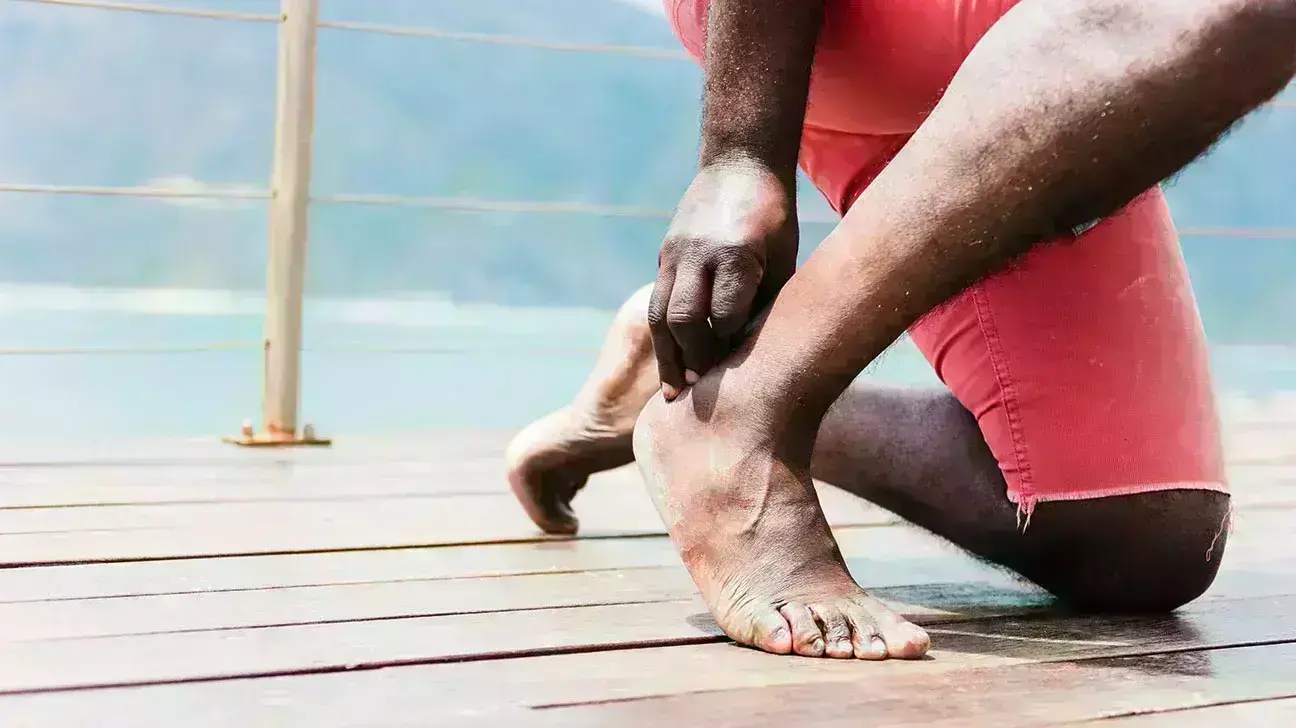- Home
- Medical news & Guidelines
- Anesthesiology
- Cardiology and CTVS
- Critical Care
- Dentistry
- Dermatology
- Diabetes and Endocrinology
- ENT
- Gastroenterology
- Medicine
- Nephrology
- Neurology
- Obstretics-Gynaecology
- Oncology
- Ophthalmology
- Orthopaedics
- Pediatrics-Neonatology
- Psychiatry
- Pulmonology
- Radiology
- Surgery
- Urology
- Laboratory Medicine
- Diet
- Nursing
- Paramedical
- Physiotherapy
- Health news
- Fact Check
- Bone Health Fact Check
- Brain Health Fact Check
- Cancer Related Fact Check
- Child Care Fact Check
- Dental and oral health fact check
- Diabetes and metabolic health fact check
- Diet and Nutrition Fact Check
- Eye and ENT Care Fact Check
- Fitness fact check
- Gut health fact check
- Heart health fact check
- Kidney health fact check
- Medical education fact check
- Men's health fact check
- Respiratory fact check
- Skin and hair care fact check
- Vaccine and Immunization fact check
- Women's health fact check
- AYUSH
- State News
- Andaman and Nicobar Islands
- Andhra Pradesh
- Arunachal Pradesh
- Assam
- Bihar
- Chandigarh
- Chattisgarh
- Dadra and Nagar Haveli
- Daman and Diu
- Delhi
- Goa
- Gujarat
- Haryana
- Himachal Pradesh
- Jammu & Kashmir
- Jharkhand
- Karnataka
- Kerala
- Ladakh
- Lakshadweep
- Madhya Pradesh
- Maharashtra
- Manipur
- Meghalaya
- Mizoram
- Nagaland
- Odisha
- Puducherry
- Punjab
- Rajasthan
- Sikkim
- Tamil Nadu
- Telangana
- Tripura
- Uttar Pradesh
- Uttrakhand
- West Bengal
- Medical Education
- Industry
Hyperuricemia independent risk factor for achilles tendon rupture in males: study

Achilles tendon ruptures (ATR) are a common injury associated with exercise. It can severely impair mobility and affect normal activity and movement. Preventing the occurrence of ATR becomes an important option to reduce the health risks in this population. Several risk factors for ATR have been identified - age, sex, body mass index (BMI), race, smoking status, use of fluoroquinolones, topical and oral corticosteroids, previous achilles tendinopathy, blood type, and intensity of participation in competitive sports.
Chen et al conducted a study to find the correlation between achilles tendon rupture (ATR) and hyperuricemia. The study was conducted at Department of Hand and Foot Surgery, Orthopedic Center, Qilu Hospital (Qingdao), Cheeloo College of Medicine, Shandong University, Qingdao, China.
A retrospective review of 488 subjects was performed (182 with Achilles tendon rupture, 306 controls with ankle sprains). Demographic variables and risk factors for rupture were tabulated and compared. The baseline data and related indicators were compared, and the risk factors of ATR were analyzed by constructing a binary logistic regression model.
Key findings of the study were:
• Univariate logistic analysis showed that BMI, smoking, and hyperuricemia were risk factors for the development of ATR (OR=1.65, 95%CI 1.13–2.42, P=0.01; OR=1.47, 95%CI 1.00–2.24, P<0.05; OR=2.85, 95%CI 1.84–4.42, P<0.01).
• Multifactorial analysis showed that BMI≥25 kg/m2, smoking, and hyperuricemia were independent risk factors for the development of ATR (OR=1.66, 95%CI 1.11–2.49, P=0.01; OR=2.15, 95%CI 1.28–3.60, P<0.01; OR=3.06, 95%CI 1.92–4.89, P<0.01).
• Among the blood biochemical indicators, total cholesterol (TC) and uric acid (UA) were independent risk factors for the occurrence of ATR (OR=1.54, 95% CI 1.12–2.12, P=0.01; OR=1.01, 95% CI 1.01–1.01, P<0.01).
The authors concluded – “Our study confirmed that, as in previous results, higher BMI, smoking, and total cholesterol are risk factors for ATR, hyperuricemia may contribute to the development of ATR, and adjunctive tests for TC and UA in the blood biochemistry may be helpful in predicting the risk of ATR.”
Further reading:
Hyperuricemia as an independent risk factor for achilles tendon rupture in male: a case– control study Chen et al. Journal of Orthopaedic Surgery and Research (2024) 19:215 https://doi.org/10.1186/s13018-024-04698-9
MBBS, Dip. Ortho, DNB ortho, MNAMS
Dr Supreeth D R (MBBS, Dip. Ortho, DNB ortho, MNAMS) is a practicing orthopedician with interest in medical research and publishing articles. He completed MBBS from mysore medical college, dip ortho from Trivandrum medical college and sec. DNB from Manipal Hospital, Bengaluru. He has expirence of 7years in the field of orthopedics. He has presented scientific papers & posters in various state, national and international conferences. His interest in writing articles lead the way to join medical dialogues. He can be contacted at editorial@medicaldialogues.in.
Dr Kamal Kant Kohli-MBBS, DTCD- a chest specialist with more than 30 years of practice and a flair for writing clinical articles, Dr Kamal Kant Kohli joined Medical Dialogues as a Chief Editor of Medical News. Besides writing articles, as an editor, he proofreads and verifies all the medical content published on Medical Dialogues including those coming from journals, studies,medical conferences,guidelines etc. Email: drkohli@medicaldialogues.in. Contact no. 011-43720751


